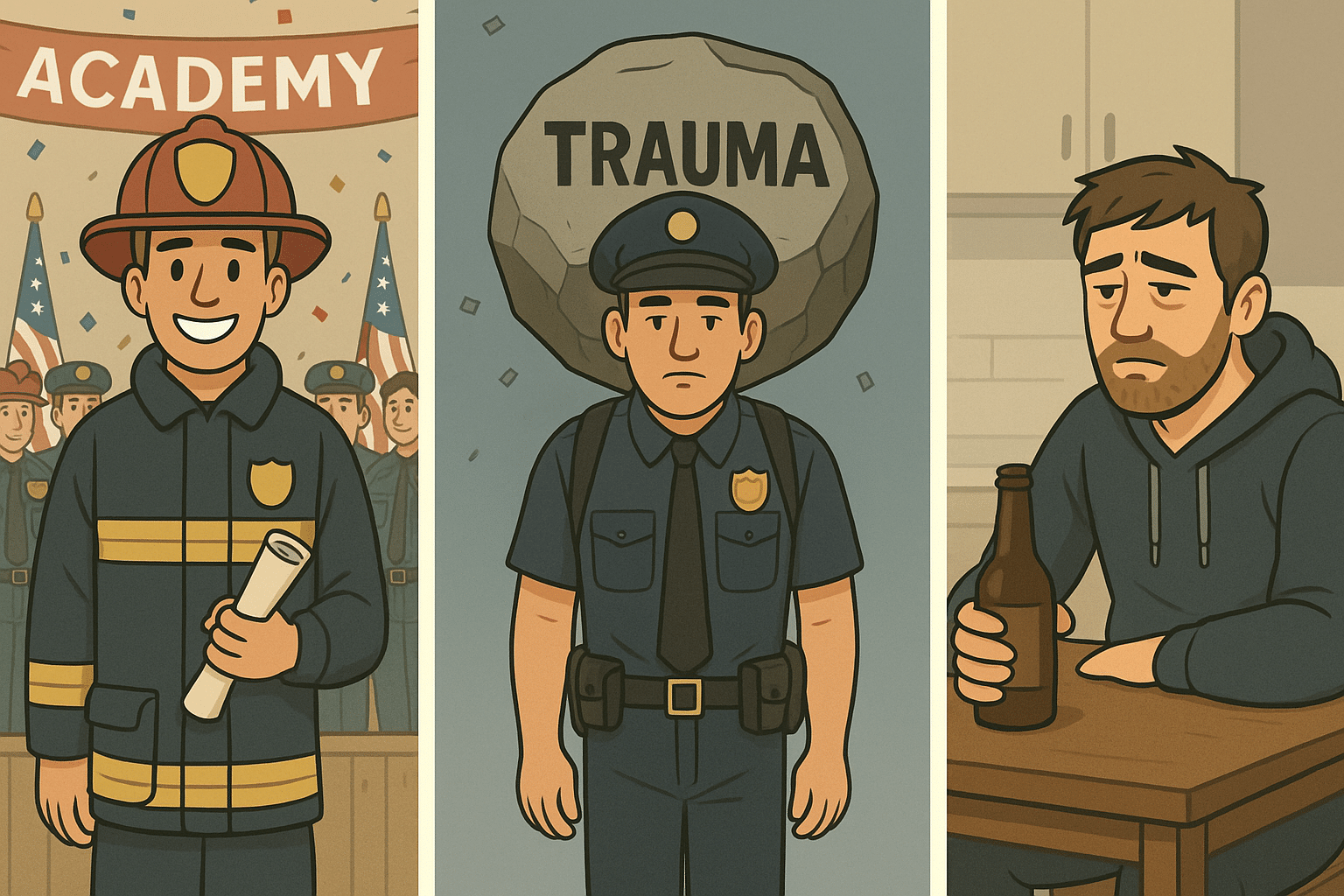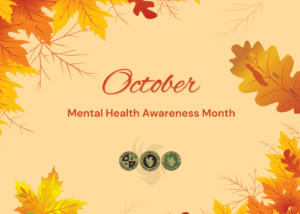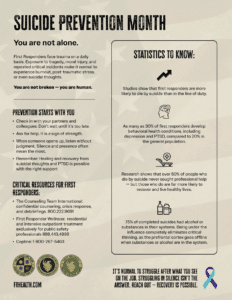Navigating the Emotional Arc of Public Safety Careers
By Fire Chief Sam DiGiovanna
In the world of public safety, the journey often begins with pride and purpose. Graduation from the academy marks a moment of triumph, uniforms crisp, hearts full, and a future brimming with possibility. Recruits step into their roles with a deep sense of mission, ready to serve, protect, and make a difference.
Beneath the surface of this noble calling lies a quieter, more complex reality, one that unfolds over months and years on the job. The shift from celebration to survival can be subtle at first. A difficult call, a haunting image, a moment that lingers long after the sirens fade. Trauma, once a distant concept, becomes personal. And for many, the weight of repeated exposure begins to reshape the landscape of our mental health.
Post-Traumatic Stress Disorder (PTSD) is not a sign of weakness; it’s a natural response to unnatural events. Yet in the culture of public safety, where stoicism is often mistaken for strength, many suffer in silence. The coping mechanisms that emerge, alcohol, prescription misuse, isolation are not born of recklessness, but of desperation. Substance abuse becomes a symptom of untreated pain, a temporary escape from memories that refuse to fade.
This emotional arc from academy pride to operational trauma to substance struggle is not inevitable. It is a pattern we can interrupt. First Responder Wellness peer support programs, trauma-informed leadership, and culturally competent mental health services are lifelines. So is the simple act of listening without judgment, without agenda.
To those in the field – your story matters. Your pain is real. And your healing is possible. To leaders and mentors – the legacy you build is not just in tactics and training, but in the emotional safety you foster.
Let us honor the full arc of service, not just the beginning, but the middle and the recovery. Because behind every badge is a human heart, and every heart deserves hope.




